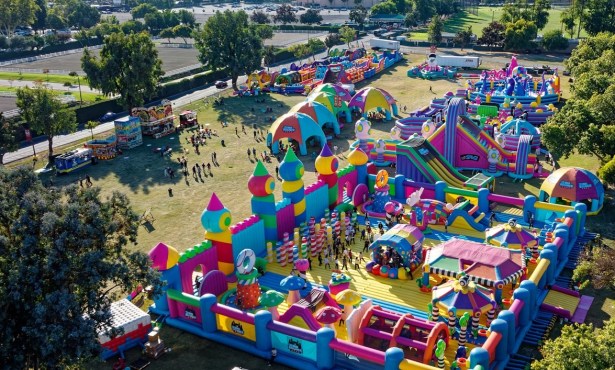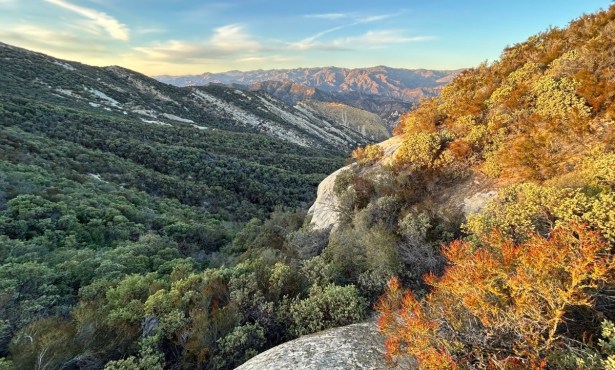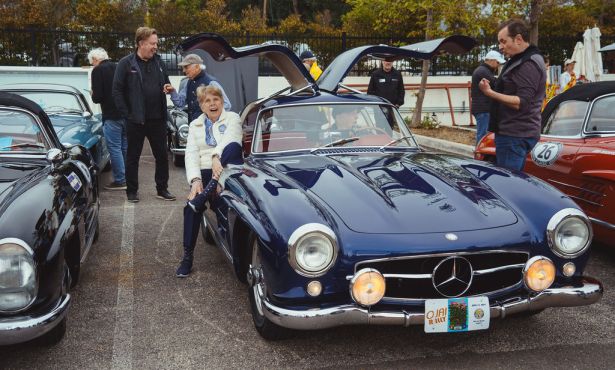Holiday Parade Honors Paul Walker’s Memory
Late Actor’s Brothers, Cody and Caleb Walker, Serve as Grand Marshals for December 2 Parade
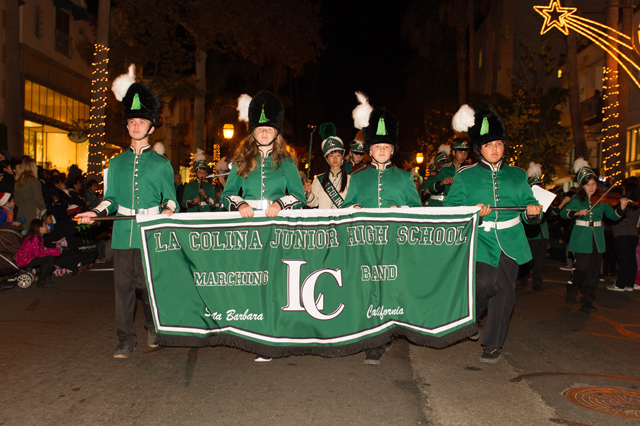
The world lost a good heart with the sudden death of Fast & Furious actor Paul Walker, but the late Santa Barbara resident’s legacy lives on through Reach Out Worldwide (ROWW), a nonprofit network of first responders and EMT-trained professionals who are on call for natural-disaster relief. Founded, designed, and funded solely by Walker before his death, ROWW seeks to fill the gap of delay it takes for foreign aid to get to crisis sites.
To support ROWW and honor Walker, his brothers, Cody and Caleb Walker, were crowned grand marshals of the 64th Annual Downtown Santa Barbara Holiday Parade, which begins at 6:30 p.m. on Friday, December 2, at Sola and State streets and travels down to Cota. Cody, who is now brand manager and CEO of ROWW, spoke to me about Paul and their organization over the phone from his home in Altadena. What follows is an edited version of our conversation.
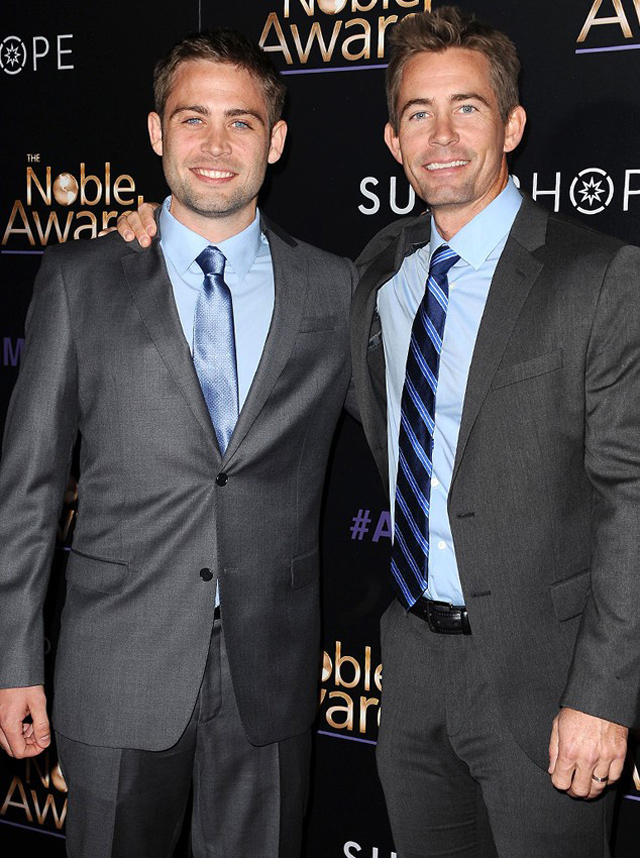
Congratulations on being named co-grand marshal of the parade. How does it feel to be given this honor? It is a great honor. It was totally unexpected when we were asked, but it’s an honor. Santa Barbara is a huge part of my family, my childhood. I didn’t grow up in S.B., but we were always going up for any excuse we could come up with.
I fell in love with it all over again when I was in high school, and I would go and visit Paul when he lived up there. There was no other place that I wanted to go away to college than UC Santa Barbara. It’s just this huge part of me; it’s like my second home. And Caleb went to Santa Barbara City College, as well.
It was a very unexpected honor, but it just makes so much sense. How could we say no? They are honoring Paul in a town that he lived in, that he called home, that he loved, that we all loved, and yeah, it was an easy decision.
So how did you make the leap into getting involved in ROWW? After I got my degree in anthropology, I decided that I wanted to get into the emergency medical field. I got my EMT through UCLA’s Center for Prehospital Care after I graduated from UCSB and immediately moved to Oregon, where I pursued a two-year program to become a paramedic. After a while, I was working full-time as an EMT for two and a half years.
And then Paul passed away, and all of my family was down here. I felt more separated than ever after he passed away. I wanted to move home. He had Reach Out Worldwide, and it was very uncertain as to what was gonna happen with that.
His first love is his daughter, Meadow, but the other thing that he left us was the charity, so I had to make sure that it stuck around. And I felt it was a good fit based on the stuff I was doing in Oregon. I fell into it and took it over and have just been very fortunate for the people who have come into my life to help me make it as successful as it can be.
How has this been stepping into this role? I’m sure it was difficult, but it was a decision made fairly recently after the accident, wasn’t it? Yes, it was. He passed away November 30, 2013, and I was involved beginning of January 2014. So, it was very fast. Unfortunately, there just wasn’t any time. Losing him was very tragic and traumatic and unexpected. There was really no time for anything. It was a lot of trial by fire, trying to round everything up and get everything organized in such a way.
Paul was the beating heart of the organization. In fact, most people, even the majority of his good fans didn’t even know it existed, further showing you just how kind of special it was. Paul funded ROWW on his own dime; ROWW didn’t operate on donations from anybody. It was Paul secretly sending these teams to areas of the world that have been stricken by disaster, and he was funding the missions himself. It’s a testament to how generous of a person he was and how much he cared for his fellow human beings. He just had the biggest heart in the world.
So do you have a memory of when Paul called you up and said, “Hey, bro, I have this idea and —?” Yeah. My mother was the first person he ever spoke to about creating an organization, about creating something to fulfill that unmet need on-site of disasters and that gap in time that larger, long-term organizations took to get there.
After the Haiti earthquake occurred in January 2010, Paul was sick and tired of seeing people talk about “Oh, how sad is that.” And he goes, “You know what? I have been so blessed in so many ways of my life. I’m not going to just sit around, be idle, and talk about how sad something is. I’m going to contribute my own resources to make something happen.” He got together people that he knew that were in the medical field — nurses, doctors, paramedics, guys from fire departments — and he sent them all over the place.
I remember I was on campus at UCSB, going to one of my classes, and I had a big assignment, and Paul calls me and says, “Hey, would you be able to leave school and go and help out if I send people over to Haiti?” Unfortunately, I wasn’t able to make that commitment at the time because of school, but that was the first I ever heard him talk about it. After that team came back from Haiti, Reach Out Worldwide was officially named, created, and born.
Did that have any influence on you becoming a paramedic? It’s a little bit different than that. Paul and I were both drawn into the medical field, or helping people, because our mom’s a registered nurse. A few years ago, my sister followed in my mother’s footsteps and became an RN. So it might be coming from there; it might be coming from our mom. I’m not really sure.
How special will it be to have Paul honored in this parade? Santa Barbara just speaks so much to his personality. He and I were very similar in that way. Paul was just very low-key, and Santa Barbara is a very low-key place with a lot of very low-key people that aren’t necessarily in a rush. It was just the right distance from L.A. for him. He hated the big L.A. city. He was just much more modest and slow-paced than that.
He couldn’t see himself living in the Hollywood hills and doing the stereotypical Hollywood actor thing; it just wasn’t him. He drove a pickup truck. He had a lot of cars; he did enjoy vehicles, but his daily driver was like a 2006 Toyota Tundra. That’s what he drove everywhere all the time. He had a collapsible camper shell on it, and he would take his dogs everywhere with him.
He would go to the beach all the time; he lived a sandy beach lifestyle. He loved to surf, the ocean, and all its critters. His daughter, Meadow, my niece, created the Paul Walker Foundation, which is an organization whose mission is to help students through school who are aspiring marine biologists. Because that’s what Paul wanted to do. That was Paul’s original thought. He said, “I’m going to be a marine biologist.”
He never made it to the university level because his acting career took off, and it took him places he never thought he’d be going. He accepted the fact that he could never go back and sit in the classroom as Paul Walker the actor, [but he thought], “I can use the situation I’m in to help generate awareness in marine biology and conservation of our oceans.” He did a lot of stuff with Shark Week in previous years with Dr. Michael Domeier, the marine conservationist for great white shark research. The fact that the parade’s theme is “Under the Sea” is just so crazy. It’s Santa Barbara, it’s an ocean-themed deal, and it makes so much sense.
What’s next for ROWW? As a whole, we have actually grown quite a bit this year, with the number of deployments that we were able to do and the number of volunteers. Our pool has grown. We plan on continuing to grow that pool. I wouldn’t say we are trying to grow to be a massive organization, because that would hamper our original goal to be light and nimble and quick. I guess the best answer I can give you is that we want to become stronger, not necessarily larger.
What would you like Santa Barbara to know about Paul? Santa Barbara should just know that Paul really enjoyed his time living up there. He loved the people there; he loved the way they treated him; he loved the way that it was kind of like his neighbors and everyone around him knew who he was and where he lived, but they just let him be him and live his life. Santa Barbara was just his love. And I think he’d be so honored in that respect that they are remembering him in this parade. I think it’s really, really neat.
See roww.org for more on the organization and downtownsb.org for more on the parade.

